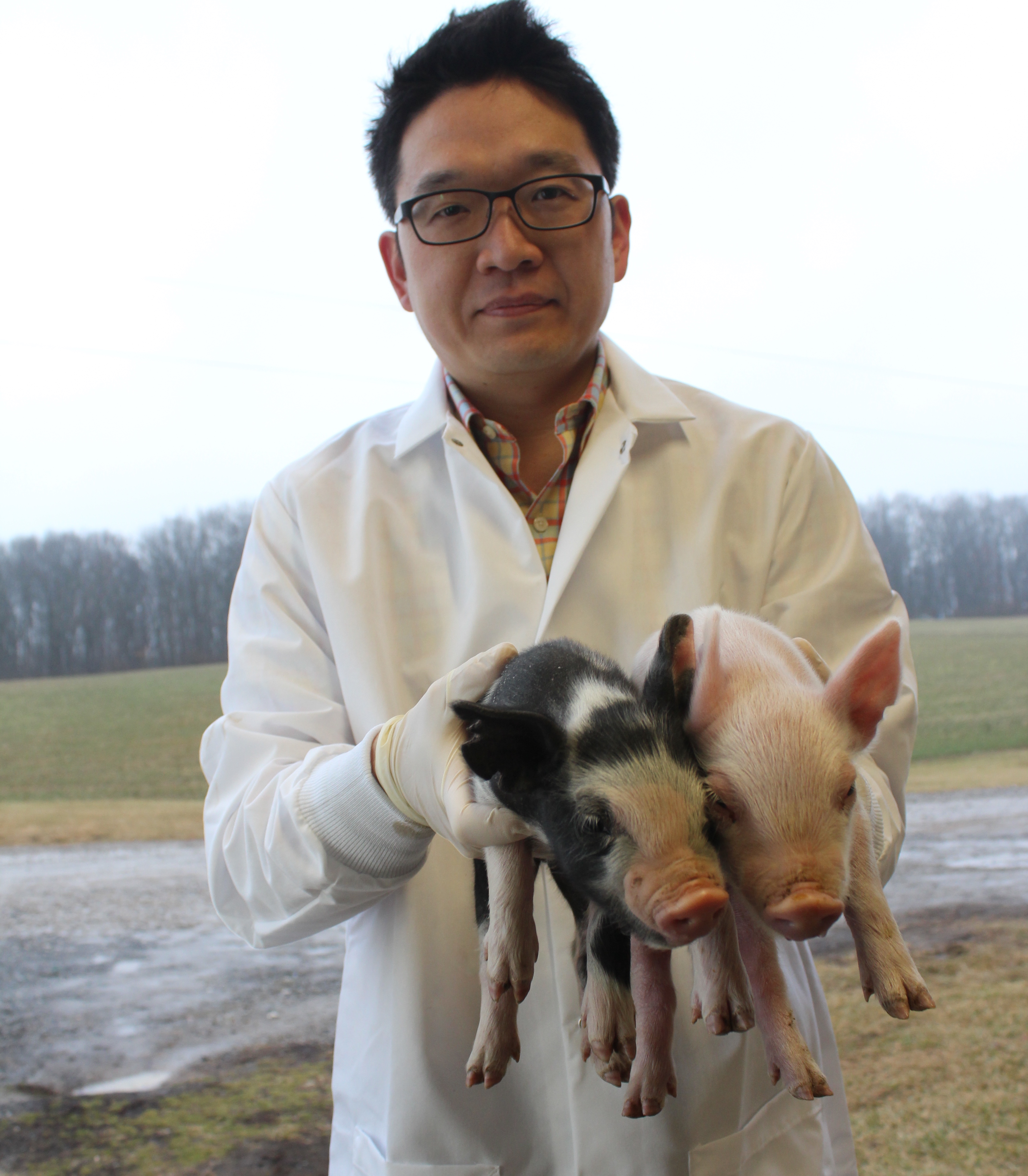Virginia Tech researcher works to end gastric illness in people, increase production of pigs

Virginia Tech scientist Kiho Lee’s research relies on finding pathways.
Whether these pathways are responsible for food intake, or pathways that viruses use as entryways to the host, Lee and his collaborators want to use these conduits to develop vaccines for humans and find ways for pigs to utilize feed more efficiently.
“Studying pathways means that we effectively have a platform to develop vaccines for a large number of infectious diseases,” said Lee, an assistant professor of animal and poultry sciences in the College of Agriculture and Life Sciences.
Lee works with Lijuan Yuan, an associate professor of virology and immunology in the Department of Biomedical Sciences and Pathobiology in the Virginia-Maryland College of Veterinary Medicine, to study norovirus and rotavirus, both of which cause gastroenteritis.
Their goal is to develop effective vaccines against norovirus gastroenteritis — a condition that is especially prevalent among elderly people and young children and is responsible for 56,000 to 71,000 hospitalizations and approximately 800 deaths per year, according to the Centers for Disease Control and Prevention.
Their work is conducted in a gnotobiotic pig facility at Virginia-Maryland College of Veterinary Medicine, where pigs are studied.
Lee said pigs display disease symptoms similar to humans and they also correlate to human health better than rodent vaccine testing models.
While Lee conducts research on pigs together with Yuan to develop vaccines, he is also making inroads in hog production.
“Basically I am a pig farmer,” said Lee. “I’m still interested in production. The question I am asking is how can I produce these animals at a high rate and with high efficiency.”
He is developing a way to design models that both agricultural and biomedical industries can utilize to increase profit margins.
Typically it takes two-and-a-half years to select for traits in pigs through conventional genetic engineering approaches, but Lee’s techniques shave two years from the process, which is helpful for agriculture specialists and pharmaceutical companies alike.
“That’s a huge difference,” said Lee. “In six months you have your model. The cost is lowered, and the low cost makes this kind of research practical for agriculture when it was not practical before.”
Lee believes the research will increase livestock production. By revealing pathways in charge of food intake, the animals can better metabolize feed to increase muscle mass.
Lee works in conjunction with Dr. Sherrie Clark, an associate professor of theriogenology — the study of the physiology and pathology of reproductive systems — in the Department of Large Animal Clinical Sciences. Her work in embryo transplantation has helped move the research forward.
Whether it’s biomedicine or hog production, Lee said the research in treating enteric viruses will itself be a pathway for research on more deadly viral diseases.






